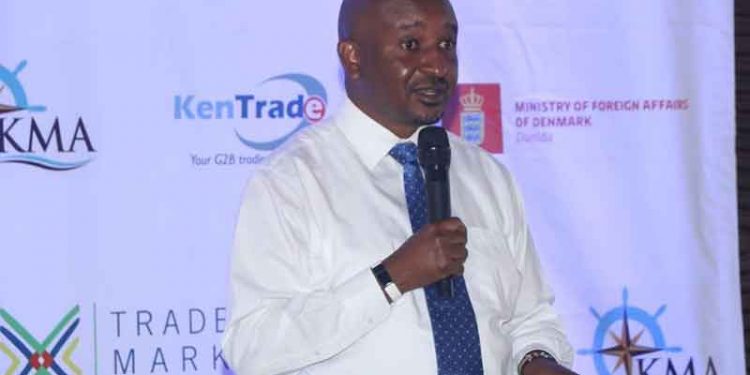Having successfully made significant strides in clearing cargo at various entry points through the online systems, there is a need to create a platform to address the gaps that exist in the movement of cargo along the corridor, KenTrade has suggested.
The agency, which runs the online cargo clearing system, has asked the government and industry stakeholders to support implementation of a Logistics Coordination Platform which will provide information to all the players on the exact location of their cargo whether it is transported by road or rail.
Mr Amos Wangora, KenTrade Chief Executive Officer, in a recent speech during the launch of Single Maritime Window System, pointed out that some gaps still exist in the import, export and transit processes beyond the compliance requirements automated through the TradeNet environment.
“Traders are often left on their own to find other necessary services after fulfilling government processes and there is a need for an e-commerce platform to address these gaps through a market linkage service platform,” Wangora said.
KenTrade, Wangora revealed, is contemplating an online trade logistics directory that will provide a listing of all players within the trade logistics sector, detailing the products and services, prices where applicable and their contacts to address this gap.
“This platform once implemented will also help accumulate big data for better insight and decision making,” Wangora said.
With the recent implementation of the Risk Management module, Kenya TradeNet System has now fully completed all modules it envisaged when it was created.
The System has over 14,000 users, registered with 41 stakeholder organizations including 36 Partner Government Agencies (PGA’s) drawn from both public and private sectors.
The system has also been fully integrated into Kenya Revenue Authority’s Integrated Customs Management System (ICMS). This integration and roll out of the Cargo release module implies Kenya has moved very close to achieving a paperless clearing process as the Government Agency now does not require the submission of any hard copy documents for stamping before release of cargo.
Government Agencies can now release all consignments online and in turn allow customs to release the same consignments similarly. The same has also been upgraded to meet new trends in IT. User Acceptance Testing (UAT) and piloting on the upgraded system has been completed.
“The upgraded System will improve our user experience and network quality given that we are investing in modern technology. We expect Go-live with the upgraded System during the month of August this year,” Wangora said.
Information for Trade in Kenya (InfoTradeKenya) System, which was launched in 2017 to provide information on imports and exports, has so far published over 80 procedures of various commodities from government ministries and agencies that have a role to play in international trade.
“We continue to work with TradeMark East Africa, East Africa Community (EAC) secretariat and UNCTAD in up-scaling efforts to simplify more procedures to improve ease of doing business in Kenya,” Wangora said.
Watchlist Screening (i-SreenKenya), which was introduced in 2019, has also been revamped. The system enables traders to access and search for information pertaining to their global potential trading partners. The revamped System is already operational and re-launch will be done this month.
The Single Maritime Window System was officially launched last week. This was a joint initiative between KenTrade and Kenya Maritime Authority (KMA) to develop the system that facilitates ship clearance procedures by providing a single online portal for the declaration of information on the arrival, stay and departure of ships between the shipping lines/agents and the approving government agencies involved.
Supported by TMEA, this system is a mandatory requirement for national governments to introduce electronic information exchange between ships and ports, which came into effect from 8 April 2019.
The requirement, under International Maritime Convention’s (IMO’s) Convention on Facilitation of International Maritime Traffic (FAL Convention), is part of a package of amendments under the revised Annex to the FAL Convention, adopted in 2016.
The system will allow Shipping Agents in Kenya to submit electronically declarations to government agencies mainly KMA, Kenya Revenue Authority (KRA), Kenya Ports Authority (KPA), State Department of Immigration, Port Health, National Environment Management Authority (NEMA), Kenya Plant Health Inspectorate Service (KEPHIS) and the Kenya Coast Guard Service.





